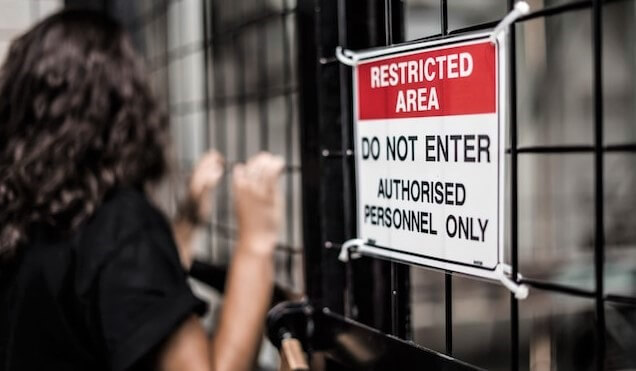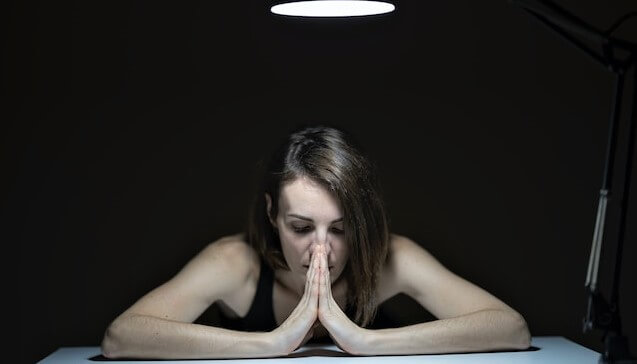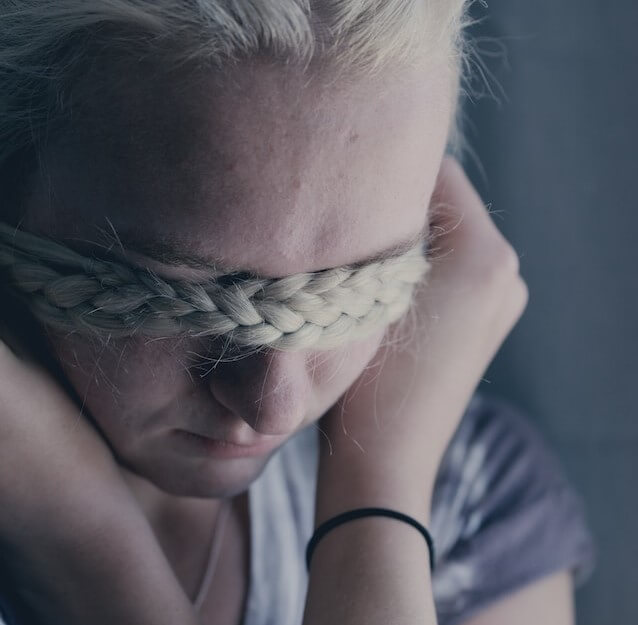The Silent Defense: Why do I shut down emotionally?
Emotional shutdown can be a perplexing experience at the moment!
Here we discuss and provide possible tips related to the question “Why do I shut down emotionally?”
It is often overlooked, but emotional shutdown becomes dangerous if it keeps happening over and over interfering with our normal occupations.
It can influence our responses and behaviors to the point of building a wall.
And we design that wall to detach us and from our own emotions and those around us.
Emotional shutdown is a self-preservation strategy coming from past experiences. Traumatic events, heartbreak, or a constant barrage of stress can trigger this instinctive response. As a we try to avoid pain, we withdraw from our emotions and the people around us, shielding ourselves in emotional detachment.

In this in-depth exploration, we delve into the underlying reasons behind emotional shutdown and how it affects our experience of life.
At the same time, We are also going to expand about the connection between emotional shutdown and the concept of vulnerability, examining how one impacts the other and its profound implications for our emotional balance.
Uhm, it looks promising, isn’t it? Let’s go!
The Self-Protective Shield: Unveiling the Purpose of Emotional Shutdown
Some brief definition will help as a starting point :
Emotional shutdown is a self-protective mechanism that often occurs in response to overwhelming or distressing emotions.
What happens is that in those conditions your body is overflooded with adrenaline and cortisol, which should normally increase your perception of energy at your disposal, but in those circumstances they bring your physiology to exhaustion, leaving shutting down as the most convenient and fastest solution for your body to protect itself.
so, it’s something NATURAL…
It feel like “disconnecting” from our feelings as a means to cope with perceived threats or emotional overload.
In other words, by temporarily shutting down our emotions, we create a psychological barrier, a temporary respite, we “give us a break” that shields us from vulnerability and perceived danger.

Unveiling Vulnerability: Embracing Authenticity and Openness
Vulnerability, on the other hand, is a state we experience when we expose ourselves to emotional risks. It involves allowing ourselves to be seen and heard, acknowledging our emotions, and embracing our imperfections.
This is often considered a weakness, a flaw, something that needs to be resolved through a change in character or perspective.
But contrary to popular belief, vulnerability is not a weakness at all, but a courageous act that fosters more deep connection with others, growth, and meaningful relationships.
The Paradox of Emotional Shutdown: Hiding Behind Walls
While emotional shutdown may provide a temporary sense of safety, it does not attack the source of the problem.
Instead, it reinforces habits of isolation and inhibits authentic connection.
We are inadvertently building barriers that prevent us from experiencing the depth of human connection and hinder our ability to express our needs, desires, and vulnerabilities.

The Origins of Emotional Shutdown: Exploring Past Experiences and Trauma
The roots of emotional shutdown can often be traced back to social conditioning and past experiences, especially traumatic ones.
Childhood traumas in the family environment, societal norms, and past emotional wounds can shape our perception of vulnerability.
…And consequently multiply our propensity to shut down emotionally.
These early experiences shape our emotional landscape (the good old “glasses through which we see the world”), influencing our ability to engage with emotions in a healthy manner throughout our lives.
Read more here about my personal experiences, which led me more than once to shut down emotionally and hide myself in my comfort zone jail…
Emotional Overload: Understanding the Trigger Points
Emotional shutdown is frequently triggered by overwhelming emotional experiences. When confronted with a flood of emotions, such as grief, intense anger, or fear, our system can become overloaded, reacting with a temporary shutdown.

Like said before, to recap, his response acts as a protective mechanism.
It tries to prevent us from being engulfed by the intensity of the emotions. It tries to allow us time to slow down and process the information at disposal without the pressure of others coming from outside.
The Silent Communication: How Emotional Shutdown Affects Relationships
From what already said, it is understood that emotional shutdown can profoundly impact our relationship.
Well… it creates a barrier to emotional connection and communication.
As we shut down emotionally, our partners, family, and friends may struggle to understand our withdrawal and interpret it as a lack of interest or care…
You know…they are also human!!
So, a healthy strategy should be instead that of take time to calm down, but then never leave the situation unresolved.
Yes i know how difficult that is…

Especially if you are talking to someone if you love, calmly pick up the topic again and try together to carry it through to the end. otherwise small things can over time become mountains that are difficult to overcome…
Wanna some more? : here is an article by Psych Central about the tricky subject of proper communication when your partner shuts down….ouch! 😊
Embracing Vulnerability for Healing : How I did it
Emotional shutdown may serve as a short-term coping mechanism, but long-term reliance on this defense mechanism will cause other issues : it can hinder personal growth as well as our emotional balance. To overcome the habit of emotional shutdown, self-awareness of our own vulnerabilities is one of the keys…
Hey, this is no easy task I know, but believe me you deserve all the care you can provide yourself.
Seek professional help if needed, I personally did it and went myself through 3 (three!!) cycles of psychotherapy.

It helped me immensely as I got to know and understand…
It helped me embracing difficult areas of my personality…
Some I knew and always rejected as well as some others I had no clue they even existed in myself…
(Yes, one of them was ” Why do I shut down?”…)
This is why “the caring words” of family and friends could often not suffice to fix the issue.
Therapeutic guided approaches such as mindfulness, emotional regulation techniques, and trauma healing modalities need a Pro to be properly implemented from a novice.
As a human being, you will see the clear benefits of embracing vulnerability by rewriting its meaning in your scale of values. This also involves developing self-compassion, and building a supportive network of trusted individuals.

FAQs:
Q1: Is emotional shutdown a permanent state?
A1: No, emotional shutdown is typically a temporary state triggered by overwhelming emotions or perceived threats.
Q1: Is emotional shutdown a conscious choice?
A1: Emotional shutdown can occur consciously or unconsciously, often as a protective response to overwhelming emotions or perceived threats.
Q3: What are some signs of emotional shutdown?
A3: Signs of emotional shutdown may include emotional detachment, having a hard time expressing emotion. But also avoidance of intimacy, isolation and a sense of numbness.

Q4: Can emotional shutdown affect physical health?
A4: Yes, emotional shutdown can have holistic implications for physical health. Prolonged emotional shutdown may contribute to chronic stress, which then impact the immune system, cardiovascular health, and overall balance.
More Questions an Answers (As Always…🤣🤣🤣)
Q5: Can practicing self-care help with emotional shutdown?
A5: Absolutely! Engaging in self-care activities, such as mindfulness, exercise, creative outlets, and nurturing positive, empowering relationships, help to recover and cultivate emotional resilience to be better prepared to the effects of emotional shutdown.
Q5: Can vulnerability be empowering?
A5: You bet! Embracing vulnerability allows us to step into our authentic selves, connect with others on a deeper level, and experience a sense of empowerment through genuine expression and connection.
Q6: Can emotional shutdown be unlearned?
A6: Yes, emotional shutdown can be unlearned through deliberate practice of self-awareness, or also specific therapy.
The latter will specifically determine the underlying reasons behind emotional shutdown and gradually opening ourselves to acceptance.
Q6: When should I consider seeking professional help for emotional shutdown?
A6: If emotional shutdown significantly affects your daily functioning, relationships, or overall quality of life, I would encourage you to try the benefits of consulting with a mental health professional who can provide guidance, support, and therapeutic interventions.
(Still skeptical about speaking out your issues to a professional? I get it, in the beginning it can feel weird…..get your kickstart with this article by www.medicalnewstoday.com/…)
Conclusion
In conclusion, ” Why do I shut down?”
The connection between emotional shutdown and vulnerability reveals a delicate interplay between our self-protective instincts and our innate need for authentic connection and growth.
While emotional shutdown may offer temporary respite, it ultimately hinders our ability to experience deep and meaningful relationships. By embracing vulnerability instead, we open ourselves up to a world of emotional richness, connection, and personal evolution.

Dealing with emotional shutdown requires self-awareness, self-compassion, and a willingness to face our fears and discomfort.
On the other hand, we challenge societal notions of vulnerability vs weakness and reframe them as a strength…
We let us empower ourselves to live authentically and cultivate genuine connections.
Remember, vulnerability is not about being reckless or exposing ourselves to harm but rather about creating safe spaces for genuine expression and embracing the full spectrum of human emotions.
But, as you embark on your journey toward embracing vulnerability while naturally mitigating your emotional shutdown inclinations, be patient and compassionate with yourself.
Again, Don’t Isolate Yourself…
Seek support from trusted individuals and consider working with a therapist or counselor who can provide guidance and tools for navigating this process.
| I DID IT AND IT WORKED SPLENDIDLY ! |
So do not shame yourself to ask for help from somebody who devolved his whole career to help people with these specific issues…
Really, I will never understand how we can spend hours and tons of money to let a “Technician” repair our Refrigerator, our car or even our IPhones, but we neglect to simply do the same with the most important machine we have at our disposal : ourselves (=body+mind+soul).
…but hey, what can I say after all these years? Welcome to the human Circus!

You are paying everyday to be part of the show, so at least HAVE A GREAT TIME!
See ‘ya all in the comments!






